

— Products —
 Consumer hotline +8618073152920
Consumer hotline +8618073152920 WhatsApp:+8615367865107
Address:Room 102, District D, Houhu Industrial Park, Yuelu District, Changsha City, Hunan Province, China
All products
soil moisture sensor is a sensor used to measure the amount of water in the soil, which monitors the moisture content of the soil to help farmers determine whether irrigation is needed. By monitoring the soil moisture sensor, the farmer can understand the moisture condition in the soil and decide whether irrigation is needed based on the needs of the crop and the moisture content of the soil to maintain the soil moisture required for proper crop growth.
Tel/WhatsApp:+8615367865107
Email:Arvin@niubol.com +Nearly 100 partner companies in more than 68 countries. We are committed to providing high-quality, practical products to meet your needs and help you solve problems. Our products comply with international standards and are certified with ISO, CE and RoHS.Product Details
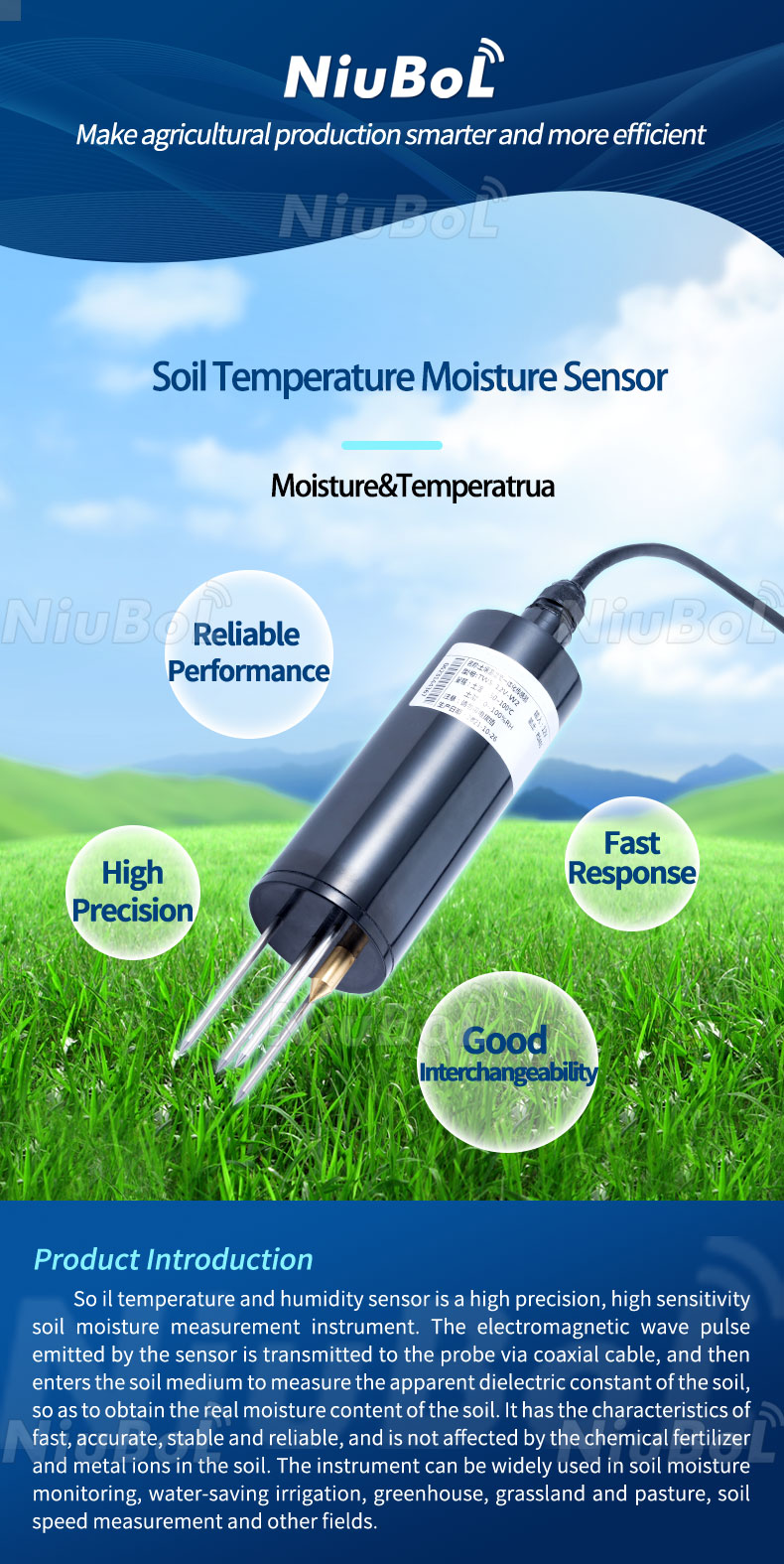
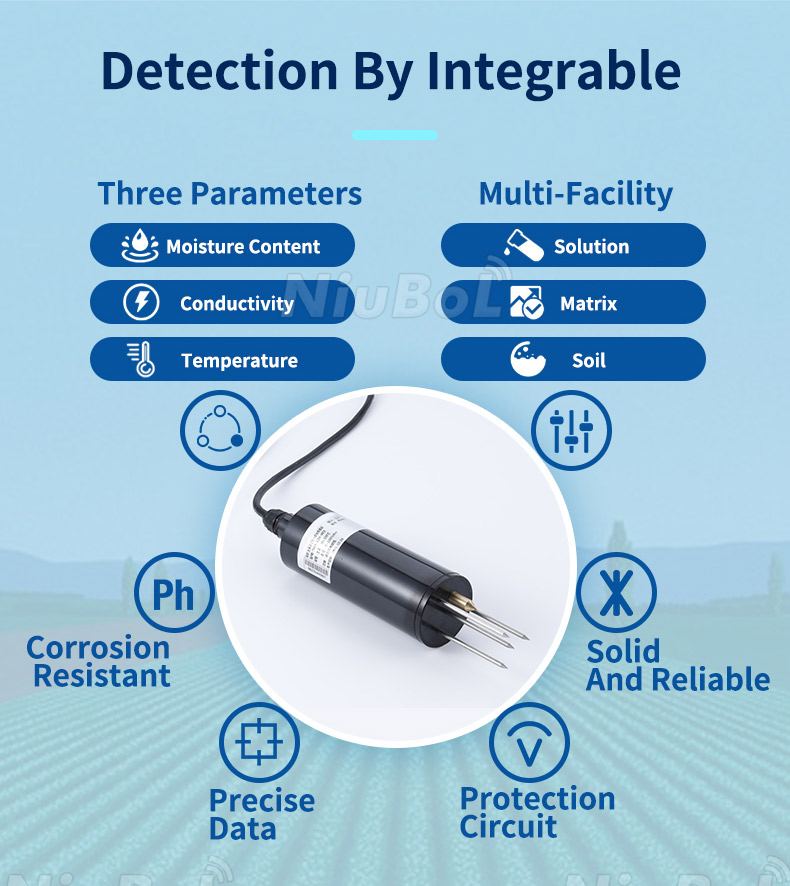
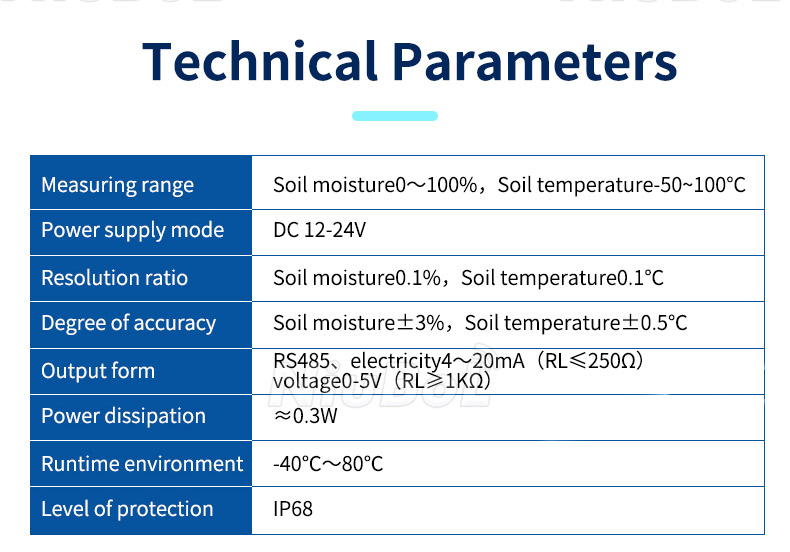
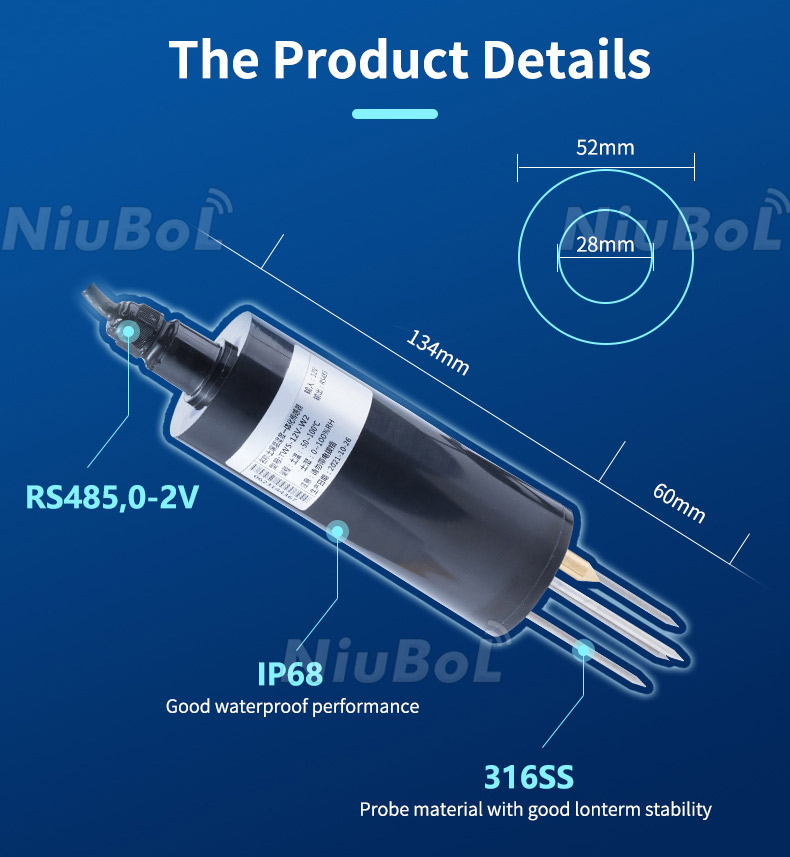
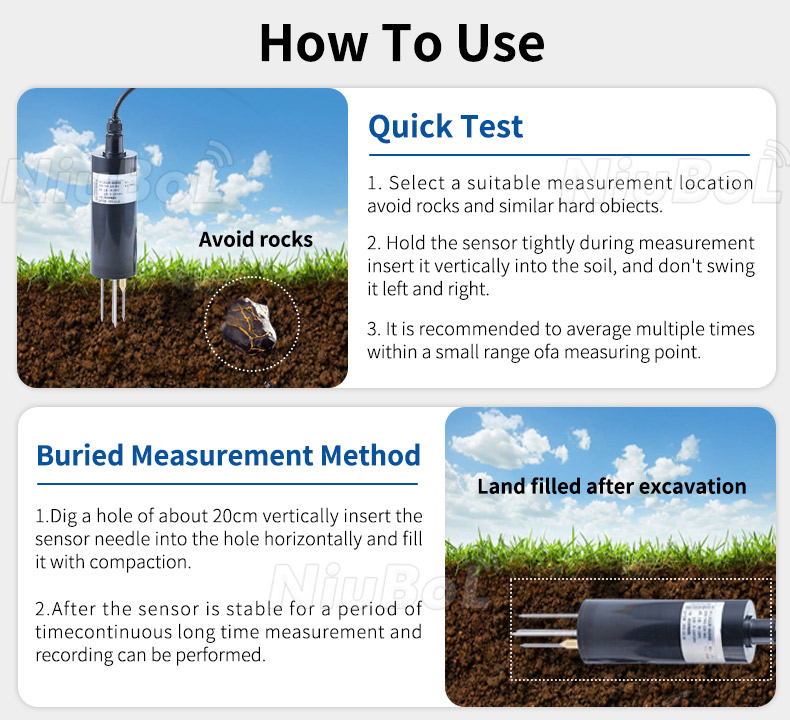
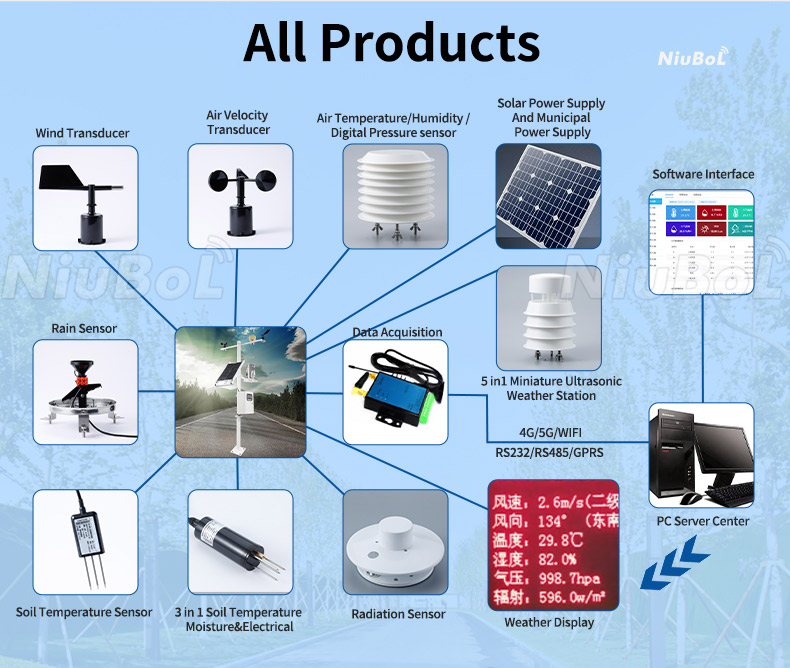
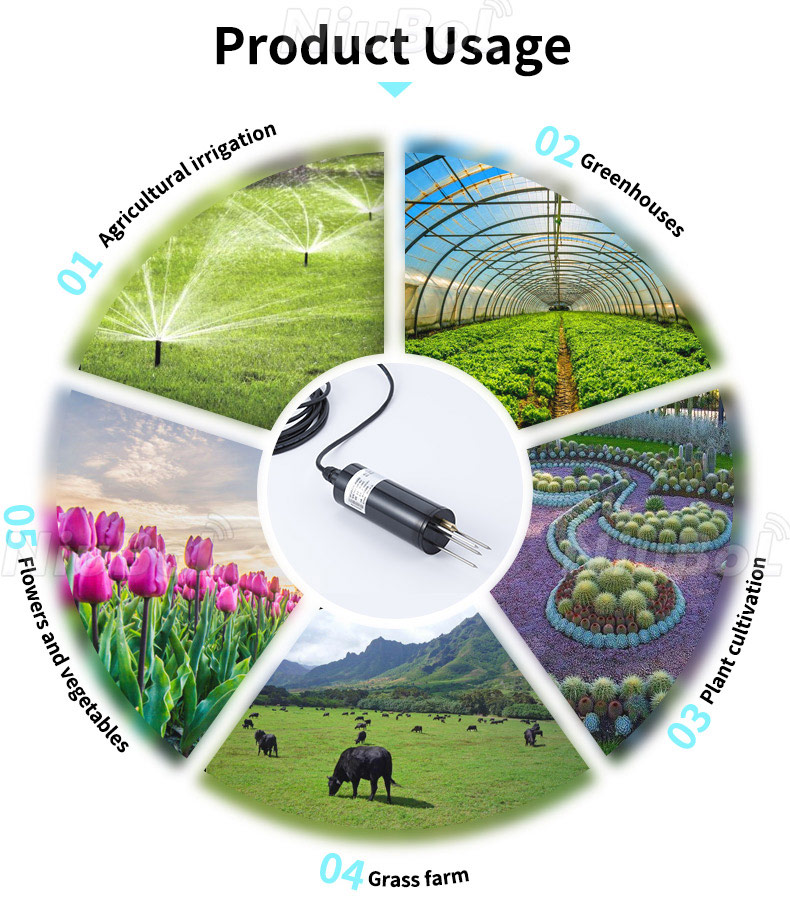
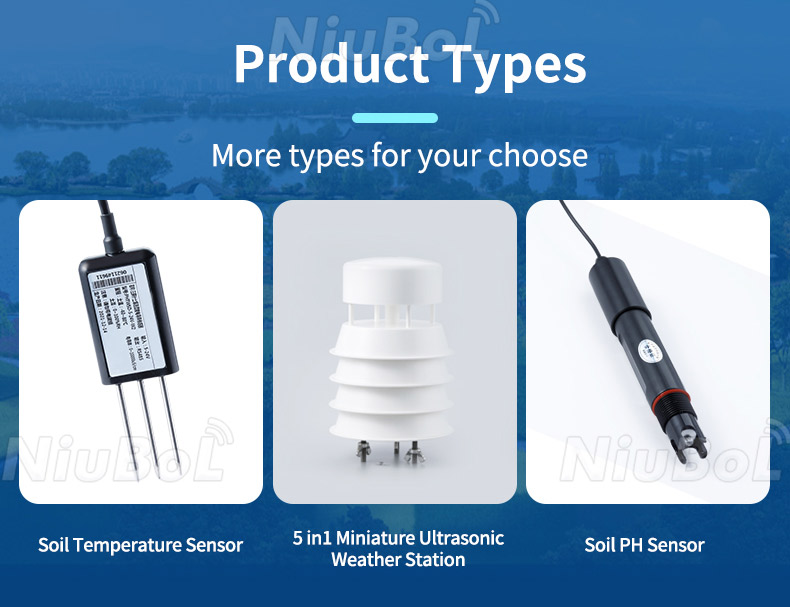
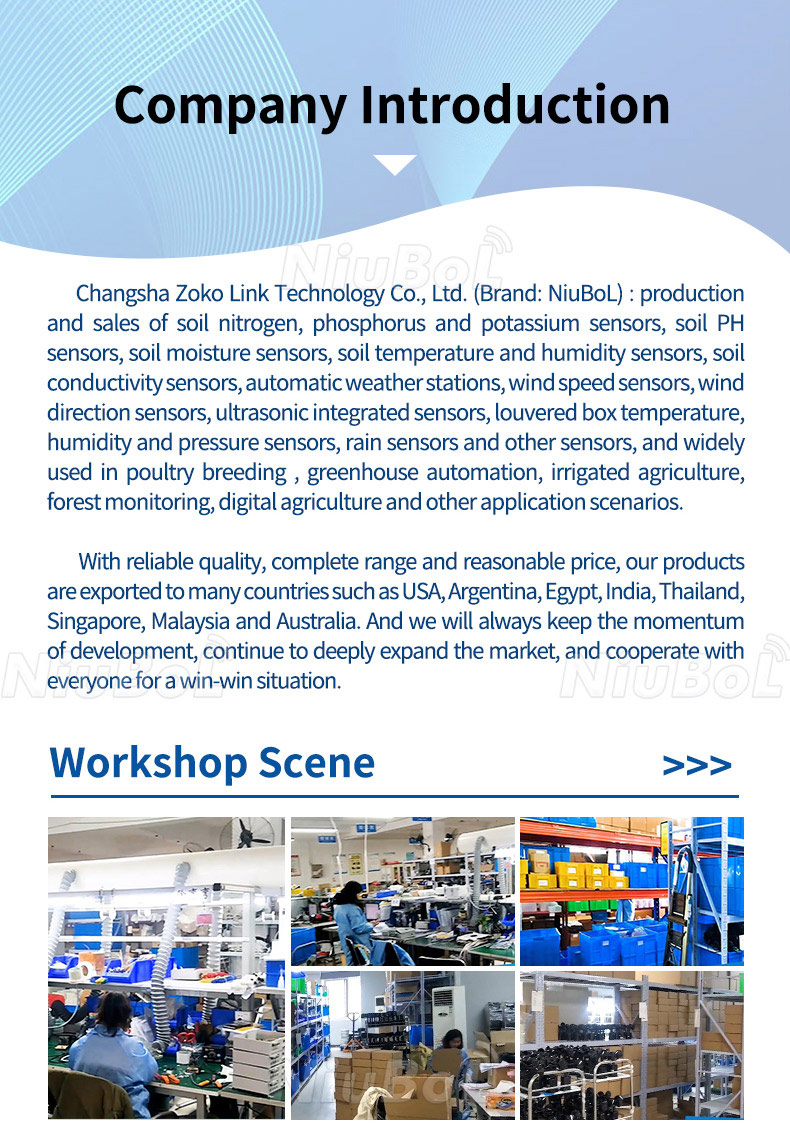
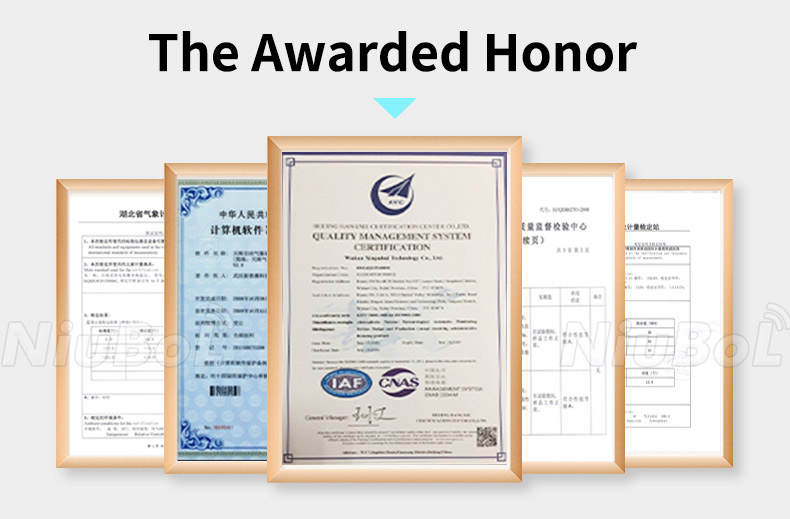
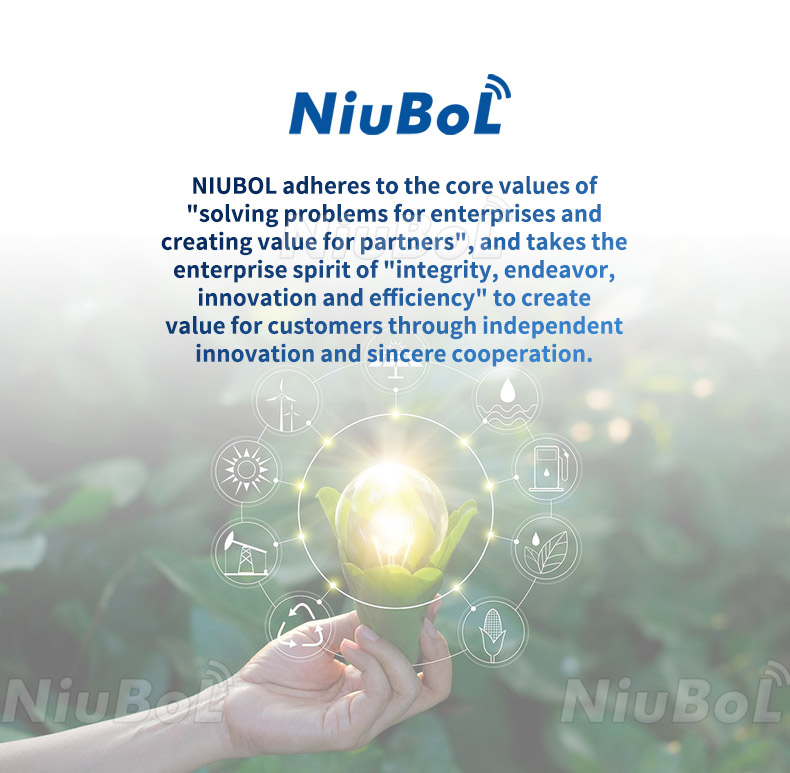
An automatic soil moisture sensor is a device that is integrated into an irrigation system to monitor the moisture level in the soil and adjust the irrigation schedule accordingly. The goal of an automatic soil moisture sensor is to maintain optimal soil moisture levels for the plants being watered, which can vary depending on plant type, season and local climate.
Soil moisture sensors work by measuring soil moisture levels at a specific depth. There are several types of soil moisture sensors, each with a different method of measurement:
1. capacitance sensors: These sensors measure the capacitance of the soil, which is affected by the moisture content of the soil. The wetter the soil, the higher the capacitance.
2. Resistivity sensors: These sensors measure the electrical resistance of the soil, which also varies with the moisture content. Dry soil has a higher resistance than wet soil.
3. Time Domain Reflectometer (TDR) Sensors: These sensors send pulses of electromagnetic energy through the soil and measure the time it takes for the pulses to travel back to the sensor. The speed of the pulse is affected by the moisture content of the soil.
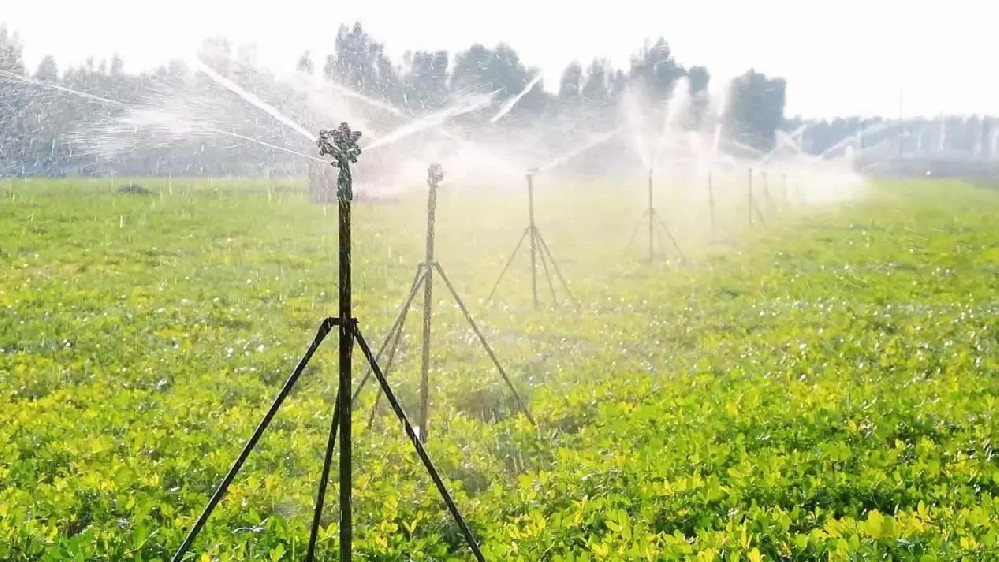
1. Soil Moisture Sensor Installation: The sensor is installed in the soil at a specific depth, usually near the root zone of the plant or crop being irrigated.
2. Moisture Measurement: The sensor continuously monitors the moisture in the soil. It can measure moisture content using a variety of techniques such as capacitance, resistance, or TDR. 3.
3. Threshold Settings: The user can set specific moisture thresholds or desired moisture levels based on the needs of the plant. These thresholds determine when the irrigation system is activated or shut down. 4.
4. Control Mechanism: The sensor is connected to an irrigation controller or valve system. When the moisture level falls below the set threshold, indicating that the soil is too dry, the sensor signals the irrigation system to be activated. Once the moisture level reaches the desired threshold, the sensor signals the system to stop irrigating. 5.
5. Adjustment and flexibility: Some advanced automatic soil moisture sensors allow for additional adjustments and customization. For example, users can set specific watering schedules, define different thresholds for different plant types or soil conditions, or integrate weather data to adjust irrigation based on rainfall or evapotranspiration rates.
Automated soil moisture sensors are valuable tools for both irrigation professionals and home gardeners, and by using an automated soil moisture sensor, users can ensure that their plants are getting enough water without over-watering or under-watering. This helps to conserve water, prevent water waste, and promote healthier plant growth. Additionally, these sensors provide convenience by automating the irrigation process and reducing the need for constant manual monitoring and adjustments.
Prev:Automated snow gauge
Sensors & Weather Stations Catalog
Agriculture Sensors and Weather Stations Catalog-NiuBoL.pdf
Weather Stations Catalog-NiuBoL.pdf
Related recommendations
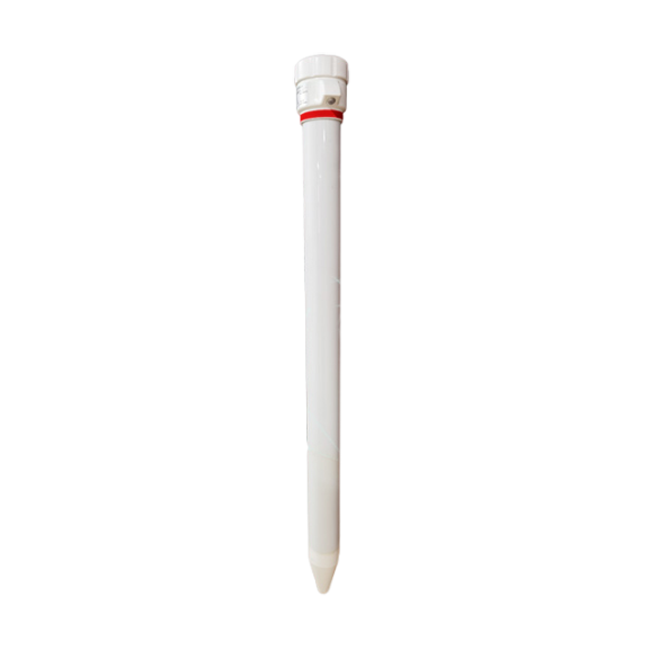 Multi-Depth Soil Sensor RS485
Multi-Depth Soil Sensor RS485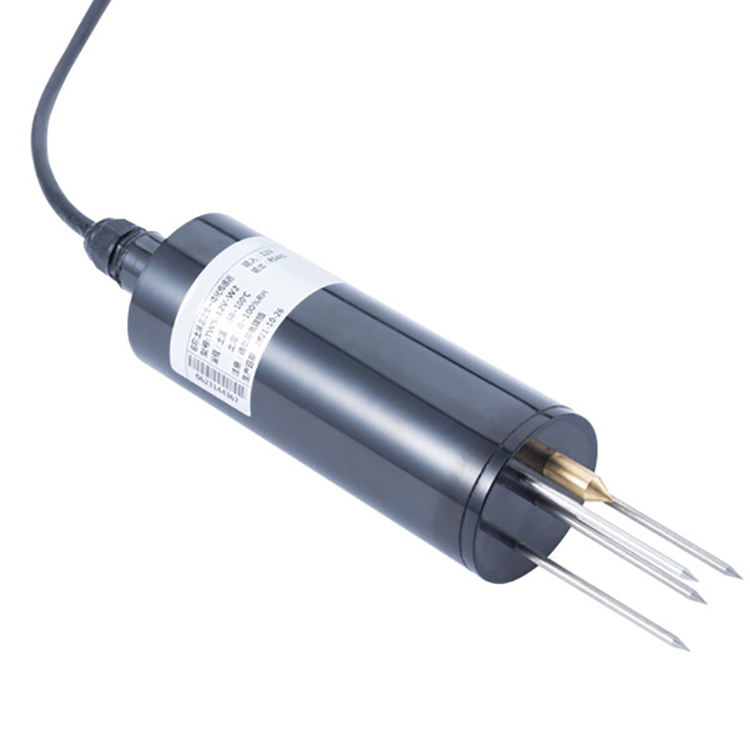 TDR Soil Moisture Sensor
TDR Soil Moisture Sensor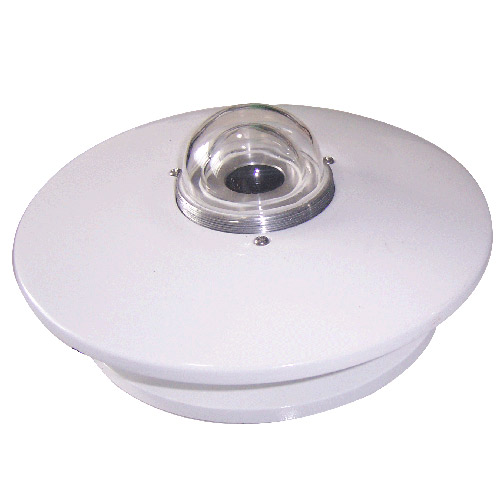 Pyranometer Solar Radiation Sensors
Pyranometer Solar Radiation Sensors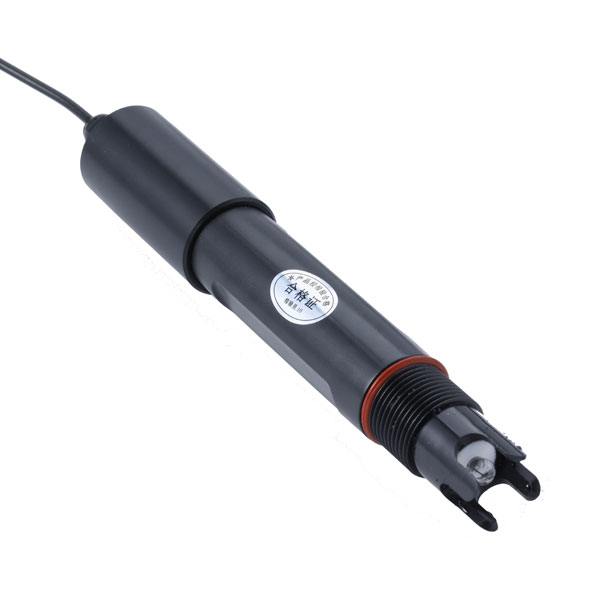 Soil ph sensor
Soil ph sensor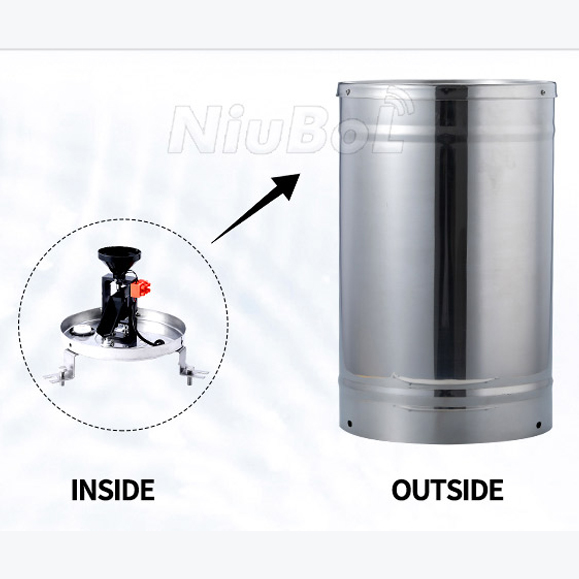 Tipping Bucket Rain Gauge
Tipping Bucket Rain Gauge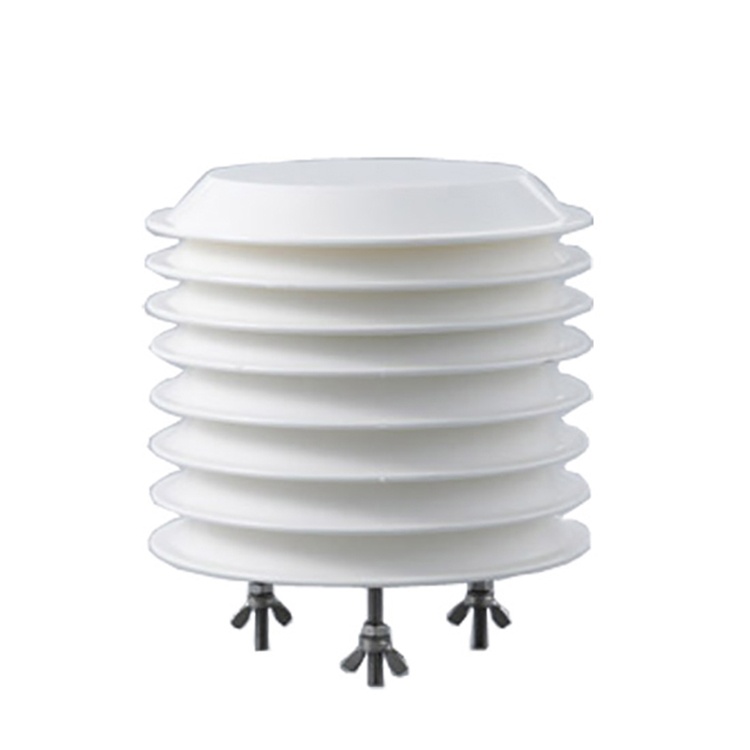 Air Temperature and Humidity Sensor
Air Temperature and Humidity Sensor
Screenshot, WhatsApp to identify the QR code
WhatsApp number:+8615367865107
(Click on WhatsApp to copy and add friends)
